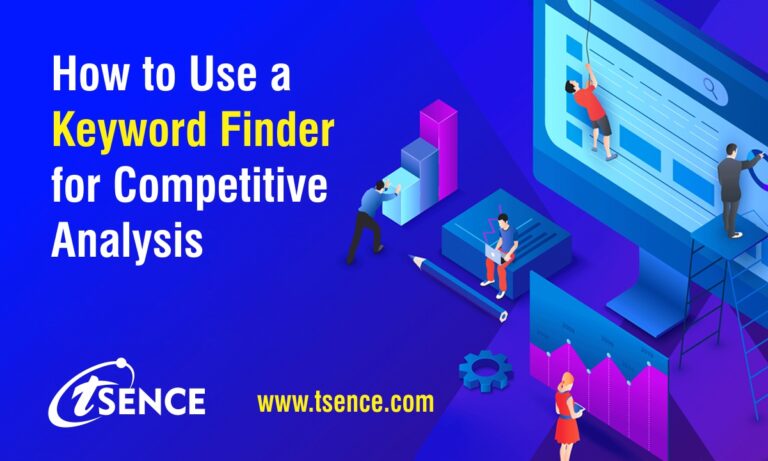In today's hypercompetitive digital landscape, businesses need to stay ahead of the game by understanding their competitors' strategies and optimizing their own. One essential tool for gaining a competitive edge is a keyword finder. A keyword finder can provide valuable insights into the keywords your competitors are targeting, enabling you to refine your SEO and content strategies. In this blog, we will guide you through the step-by-step process of using a keyword finder for effective competitive analysis.
Step 1: Choose the Right Keyword FinderThe first step in your competitive analysis journey is to select a reliable and comprehensive keyword finder tool. There are several options available in the market, so choose one that offers accurate data, detailed insights, and an intuitive user interface. Some popular keyword finder tools include SEMrush, Ahrefs, Moz, and Google Keyword Planner.
Step 2: Identify Your CompetitorsTo start your competitive analysis, make a list of your main competitors in the industry. These are the businesses that target the same audience as you and offer similar products or services. Having a clear understanding of your competitors will help you focus your efforts on gathering relevant keyword data.
Step 3: Enter Competitor WebsitesOnce you have identified your competitors, enter their website URLs into the keyword finder tool. The tool will then crawl their websites and extract valuable information about the keywords they are using in their content and SEO strategy.
Step 4: Analyze Keyword DataAfter the keyword finder tool completes its analysis, you will be presented with a list of keywords associated with each competitor. Pay attention to the following key metrics:
- Search Volume: This indicates how frequently a keyword is searched for on search engines like Google. High search volume keywords are generally more competitive but can bring significant traffic if you rank well.
- Keyword Difficulty: This metric assesses how hard it is to rank for a particular keyword. Lower difficulty keywords may be easier to target, while high-difficulty keywords require more effort and resources.
- Relevance: Focus on keywords that are highly relevant to your business and align with your products or services. Irrelevant keywords may attract the wrong audience and lead to low conversion rates.
Use the keyword data to identify both opportunities and gaps in your competitors' strategies. Look for low competition keywords that your competitors might have overlooked. These untapped keywords could be the key to attracting a niche audience and gaining an advantage in the market.
Step 6: Refine Your SEO and Content StrategyArmed with valuable keyword insights, it's time to refine your own SEO and content strategy. Incorporate high-performing keywords into your website's meta tags, titles, headings, and content. Create engaging and informative content that revolves around these keywords to improve your search engine rankings and attract organic traffic.
Step 7: Monitor and AdaptCompetitive analysis is an ongoing process. Continuously monitor your competitors' keyword usage and adapt your strategy accordingly. Keep track of changes in keyword rankings and trends to ensure your content remains relevant and up-to-date.
Conclusion:A keyword finder is a powerful tool for competitive analysis that provides businesses with valuable insights into their competitors' keyword strategies. By understanding which keywords your competitors are targeting, you can refine your own SEO and content strategies to stay ahead in the digital race. Remember, competitive analysis is not a one-time activity; it requires constant monitoring and adaptation to remain effective in the ever-changing online landscape. With the right keyword finder and a data-driven approach, you can gain a competitive advantage and propel your business to greater success.




